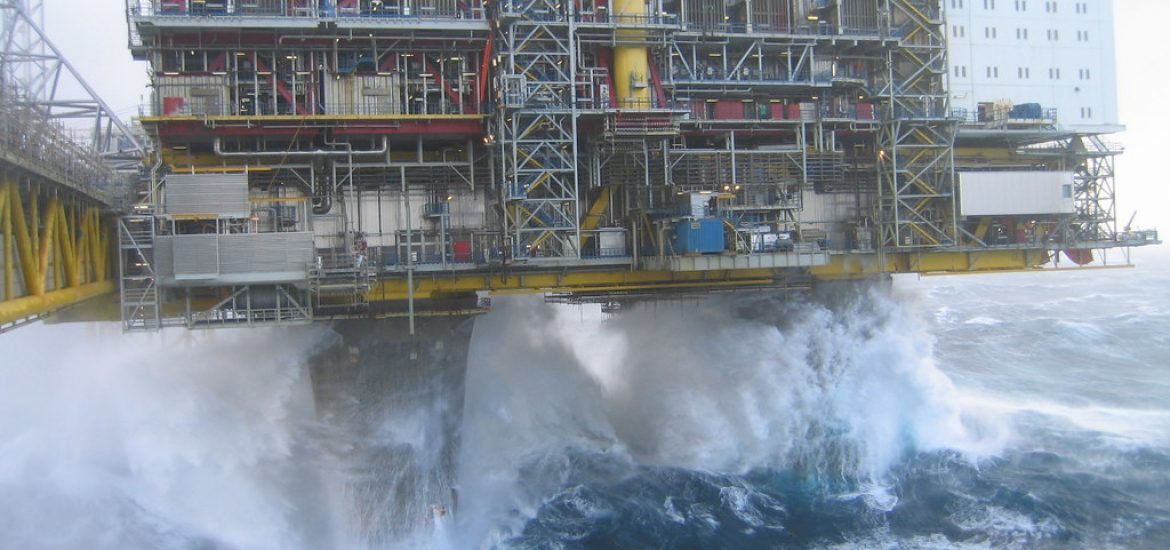
The projected cost of decommissioning North Sea oil and gas rigs has been cut by almost £9 billion in two years to around £51 billion, according to the UK government.
The Oil and Gas Authority said the estimated costs were falling because of the “continued improvement in planning and execution practices” and despite the fact that more infrastructure had been built since its original 2017 estimate of nearly £60 billion.
The drop in the estimate may be welcomed by politicians concerned about what the clean up will cost taxpayers.
Environmentalists have suggested using the spent wells for carbon storage.
The authority said improvements had cut the projected costs of filling and abandoning wells and removing platforms and underwater construction.
Even at the reduced level, North Sea decommissioning could provide a welcome source of work for oil services contractors for decades to come.
The government-owned body regulates the oil industry and oversees decommissioning. More than 300 oil and gas installations, such as production platforms, are in UK waters with many coming to the end of their working lives or serving spent fields.
The authority said firms that operate oil and gas fields have learned more about the practicalities of decommissioning in recent months following work on fields that have reached the end of their productive lives.
Shell has removed two large platforms used at the Brent field.
Taxpayers could be forced to provide about £24 billion for the cleanup operations.
The UK confirmed in 2013 that tax relief would be provided on the cost of decommissioning oil fields, which the industry said would encourage firms to buy assets in which other businesses had lost interest.
Nils Cohrs, the authority’s decommissioning chief, said: “It’s really good news that industry is now halfway towards the collective target in just two years. Better capability and experience is providing greater certainty of actual UK decommissioning costs.”
Some operators were achieving cost savings by “adopting different approaches, learning and sharing with others and challenging previous norms”, Cohrs added. “The supply chain is also bringing new solutions to the market in terms of pricing structures, business models and technology.”
The industry body Oil and Gas UK said: “The UK will be the largest market for decommissioning spend over the next decade, providing the supply chain with a steady workflow and the opportunity to develop competitive capabilities exportable to the global market.”
The body’s decommissioning boss Joe Leask told the media: “As we become more practised in decommissioning we have a better understanding of the detail of projects and, therefore, our cost estimates are becoming more certain.”
The North Sea is faced with the legacy of decades of productivity. Picture credit: Flickr





